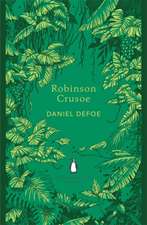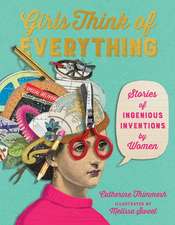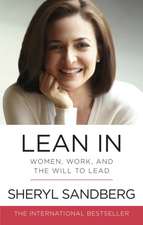Sense and Sensibility: Illustrations by Marjolein Bastin: Marjolein Bastin Classics Series
Autor Jane Austen Ilustrat de Marjolein Bastinen Limba Engleză Hardback – 23 dec 2021
The Marjolein Bastin Classics Series is a chance to rediscover classic literature in collectible, luxuriously illustrated volumes. For the first time ever, the internationally celebrated artwork of Marjolein Bastin graces the pages of a timeless classic, Sense and Sensibility, the story of the Dashwood sisters. Beyond bringing these stories to life, Bastin’s series adds elaborately designed ephemera, such as four-color maps, letters, family trees, and sheet music.
Discover anew the dramatic world of Sense and Sensibility. The happy and carefree childhood of sisters Elinor and Marianne Dashwood comes to an abrupt end with the death of their father. The family is suddenly penniless and pushed out of their home, leaving the two young ladies with one sole hope: a good marriage. After moving into the cottage of a remote relative, the spirited Marianne falls in love much too quickly. In the meantime, the more intellectual Elinor sees her chances for a happy marriage fade when she discovers the man for whom she’s fallen is already engaged. Sense and Sensibility is the story of two dissimilar sisters fighting for their happiness in the face of the strict social conventions of early eighteenth-century England.
Preț: 194.16 lei
Preț vechi: 244.69 lei
-21% Nou
37.15€ • 39.73$ • 30.98£
Carte disponibilă
Livrare economică 28 martie-09 aprilie
Livrare express 12-18 martie pentru 107.54 lei
Specificații
ISBN-10: 152486174X
Pagini: 296
Dimensiuni: 175 x 246 x 30 mm
Greutate: 0.95 kg
Editura: Andrews McMeel Publishing
Colecția Andrews McMeel Publishing
Seria Marjolein Bastin Classics Series
Notă biografică
She also writes and illustrates children’s books featuring the endearing Vera the Mouse character, which she created. Through her art and words, Marjolein offers people a simple reminder to pause and enjoy nature and allow it to be a source of serenity, energy, and healing. Finding inspiration in a bird lighting on a branch or a leaf drying in the autumn sun, Marjolein takes long walks each afternoon to seek new ideas for her artwork and her writings. Marjolein and her husband, Gaston, divide their time between country homes in Holland, Switzerland, and in Missouri, as well a tropical retreat in the Cayman Islands. Each setting provides a unique glimpse of what nature has to offer throughout the world. The couple has a son, Mischa, a daughter, Sanna, and two grandchildren.
Descriere
Recenzii
Caracteristici
Textul de pe ultima copertă
Jane Austen's first published novel, Sense and Sensibility, is a witty satire of the sentimental novel, a popular genre in Britain throughout the 1790s and the Regency. When it first appeared in 1811, the words in its title carried significant cultural weight beyond the confines of the novel, and into both popular and learned discourse. Through her dual heroines, Austen addresses, and satirizes, notions of sense and sensibility, and engages with the issues of inheritance, marriage, and love.
The story concerns two sisters: the level-headed Elinor and the passionate and impulsive Marianne. When their father dies, his son by a previous marriage assumes possession of the family home. Marianne and Elinor, left to the care of their mercenary brother John and his wife Fanny, must remove to a cottage with their mother. Each sister meets a man in whom she is interested, and as with other Austen novels, requited love does not come easily.
This newly annotated edition offers a thorough and perceptive introduction and a wide range of carefully selected contextual materials that further explore the term "sensibility."
Extras
In the novels to come, Elinor Dashwood will morph into Anne Elliott and Elizabeth Bennet (who will morph into Emma Woodhouse); Edward Ferrars into Edmund Bertram, Mr. Knightley, Henry Tilney, and Captain Wentworth; Willoughby into George Wickham and Henry Crawford. But the characters in Sense and Sensibility stand convincingly on their own, every bit as memorable as their later avatars. If Austen doesn't have quite the Caliban-to-Ariel range of a Shakespeare, she can still conjure up and sympathize with both Mrs. Jennings-the "rather vulgar" busybody with a borderline-unwholesome interest in young people's love lives, fits of refreshing horse sense, and a ruggedly good heart-and Marianne Dashwood, a wittily observed case study in Romanticism, a compassionately observed case study in sublimated adolescent sexuality, and a humorously observed case study in humorlessness. "I should hardly call her a lively girl," Elinor observes to Edward, "-she is very earnest, very eager in all she does-sometimes talks a great deal and always with animation-but she is not often really merry." Humorlessness, in fact, may be the one thing Marianne and her eventual lifemate, Colonel Brandon, have in common. (Sorry to give that plot point away; it won't be the last one, either. So, fair warning.) The minor characters have the sort of eidetic specificity you associate with Dickens: from the gruesomely mismatched Mr. and Mrs. Palmer to Robert Ferrars, splendidly impenetrable in his microcephalic self-complacency. The major characters, on the other hand, refuse to stay narrowly "in character"; they're always recognizably themselves, yet they seem as many-sided and changeable as people out in the nonfictional world.
Elinor makes as ambivalent a heroine as Mansfield Park's notoriously hard-to-warm-up-to Fanny Price. She's affectionately protective of her sister Marianne yet overfond of zinging her: "It is not every one who has your passion for dead leaves." She's bemused at Marianne's self-dramatizing, yet she's as smug about suffering in silence as Marianne (who "would have thought herself very inexcusable" if she were able to sleep after Willoughby leaves Devonshire) is proud of suffering in Surround Sound. She can be treacherously clever, as when Lucy Steele speculates (correctly) that she may have offended Elinor by staking her claim to Edward: " 'Offended me! How could you suppose so? Believe me,' and Elinor spoke it with the truest sincerity, 'nothing could be farther from my intention, than to give you such an idea.' " Yet she can also be ponderously preachy: "One observation may, I think, be fairly drawn from the whole of the story-that all Willoughby's difficulties, have arisen from the first offense against virtue, in his behaviour to Eliza Williams. That crime has been the origin of every lesser one, and of all his present discontents." (In the rest of Austen, only the intentionally preposterous Mary in Pride and Prejudice strikes just this note: "Unhappy as the event may be for Lydia, we may draw from it this useful lesson; that loss of virtue in a female is irretrievable . . ."). Is Elinor simply an intelligent young woman overtaxed by having to be the grown-up of the family? Or is she an unconsciously rivalrous sibling, sick of hearing that her younger, more beautiful sister will marry more advantageously? Or both? Or what? It's not that Austen doesn't have a clear conception of her-it's that she doesn't have a simple conception. Elinor is the character you know the most about, since Austen tells most of the story from her point of view, and consequently she's the one you're least able to nail with a couple of adjectives or a single defining moment.
Edward bothers us, too. He's a dreamboat only for a woman of Elinor's limited expectations: independent-minded yet passive and depressive, forthright and honorable yet engaged in a book-long cover-up. (It's a tour de force on Austen's part to present a character so burdened with a secret that we see his natural behavior only long after we've gotten used to him.) At his strongest and most appealing-to Elinor, at least-he's a clear-your-mind-of-cant kind of guy: "I am not fond of nettles, or thistles, or heath blossoms. . . . A troop of tidy, happy villagers please me better than the finest banditti in the world." But he can also be a Hamlet-like whiner, complaining about his own idleness and vowing that his sons will be brought up "to be as unlike myself as possible. In feeling, in action, in condition, in every thing." For my money, Edward is the least likable of Austen's heroes, while his opposite number, Willoughby, is the most sympathetic of her libertines: smarter than Pride and Prejudice's Wickham (a loser who gets stuck with the "noisy" and virtually portionless Lydia Bennet) and more warmhearted than Mansfield Park's textbook narcissist Henry Crawford. Willoughby may strike trendy Wordsworthian poses with his effusions on cottages ("I consider it as the only form of building in which happiness is attainable"), but at least he has enough sense to abhor his own callowness, and enough sexy boldness to discompose even the rational Elinor. "She felt that his influence over her mind was heightened by circumstances which ought not in reason to have weight; by that person of uncommon attraction, that open, affectionate, and lively manner which it was no merit to possess . . ." His opening line when he at last explains to her what he's been up to ("Tell me honestly, do you think me most a knave or a fool?") is one of those Byronic flourishes that make him the person in Sense and Sensibility you'd most want to dine with and least want to trust.
From the Trade Paperback edition.





























